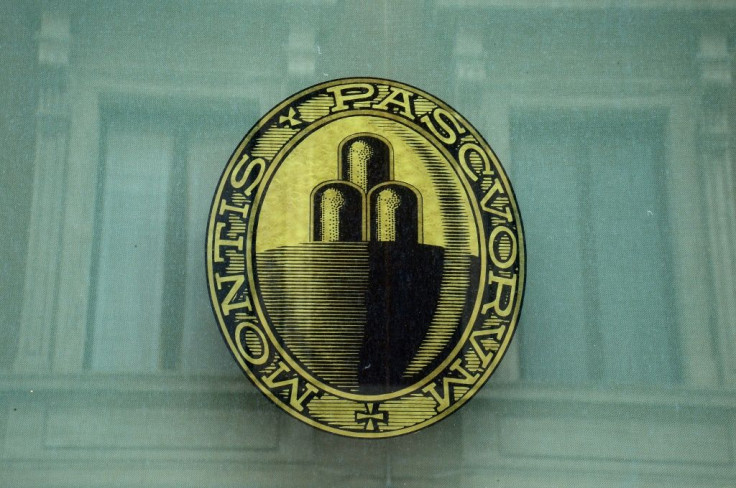Fate Of World's Oldest Bank, Italy's BMPS, Unclear As Talks Fail
The fate of the world's oldest bank, Italy's Banca Monte dei Paschi di Siena (BMPS), was hanging in the balance on Monday after the collapse of talks for its sale to UniCredit.
Negotiations between UniCredit and the Italian economy ministry, which has controlled BMPS since it was bailed out by the state in 2017, collapsed on Sunday.
They reportedly fell out over the amount of public money that UniCredit wanted to take on the burden of Monte dei Paschi, with the Corriere della Sera newspaper mentioning a 8.5-billion-euro ($9.9 billion) bill for the ministry.
The government, which is obliged under EU rules to find a private buyer for BMPS by the end of 2021, will now likely be forced "to seek an extension" from Brussels, Morgan Stanley researchers said in a note.
The failed deal is a headache for Prime Minister Mario Draghi's government, which was eager to turn the page on one of the most intractable banking crises in recent Italian history.
"The fate of MPS does not seem to be very different from that of (national airline) Alitalia," the Stampa newspaper commented on Monday.
"No one other than the state seems willing to take on its inefficiencies," it added.
Founded in Siena, Tuscany in 1472, BMPS has suffered years of trouble beginning with a disastrous 2007 purchase of the Antonveneta bank at twice its estimated value.
BMPS then drifted into scandal when its management team was accused of accounting fraud and misuse of funds.
Further weakened during the eurozone debt crisis by an onslaught of bad loans on its books, BMPS was rescued in 2017 with a bailout that cost Italian taxpayers some 5.4 billion euros.

UniCredit, Italy's second-biggest bank, has long been considered by Rome as the ideal buyer. The door to negotiations opened under UniCredit's new CEO, Andrea Orcel, who took over in April.
Lorenzo Codogno, an economist and former top Italian economy ministry official, told AFP he was surprised the talks had fallen apart, because BMPS would have been a near-perfect fit for Orcel's stated intention to expand UniCredit.
He predicted that the bank and the ministry would be back at the negotiating table "pretty soon".
"The government will ask for a three or six month extension, and I think Europe would accept that.
"But it would be hugely difficult for it to obtain a change in attitude -- such as a nationalisation or a public intervention -- that goes beyond what is expected right now," he said.
Codogno said he thought it unlikely the government would be open to an offer from a foreign bank -- should one emerge -- because of the time involved in performing the necessary due diligence.
For its part, UniCredit could look elsewhere for takeover opportunities, but "would face major difficulties" if it tried to expand into Europe, because the European banking union is "still far off being real".
"So effectively both (the government and UniCredit) will eventually have to sit back down and find a solution," he said.
© Copyright AFP 2024. All rights reserved.





















